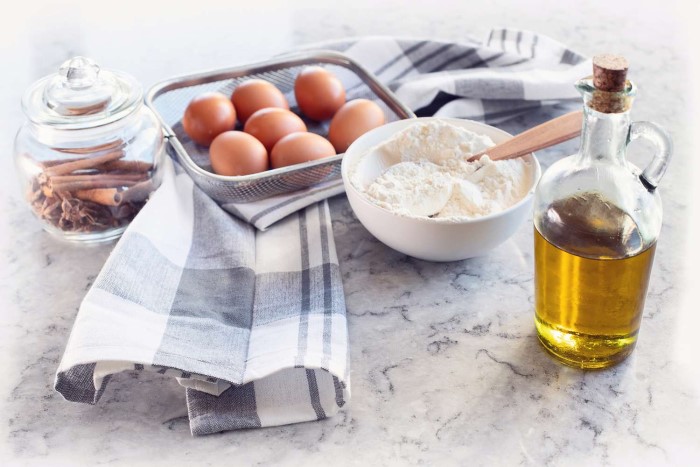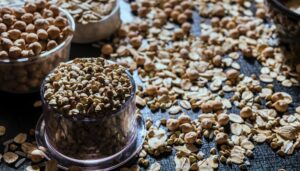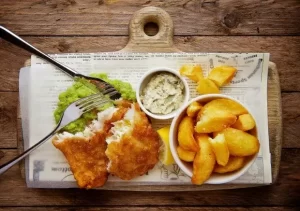
For home bakers and food enthusiasts, oils play a significant role in the quality and taste of your confections. Beyond mere lubricants for your baking pans, oils can add nuanced flavors, enhance textures, and even bring about health benefits to your baked goods. Selecting the right oil can not only improve the overall bake but also cater to dietary preferences and restrictions. In this comprehensive guide, we’ll unravel the potential of four exceptional oils in your baking repertoire—coconut oil, CBD oil, olive oil, and avocado oil.
The Art of Choosing the Right Oil for Baking
Before we dig into the distinct advantages of each oil, it’s pivotal to understand why your choice of oil in baking matters. A good oil is essential to creating moist, rich, and tender cakes, biscuits, and pastries. However, every oil is unique and can significantly alter your recipe if not used thoughtfully. We’ll be exploring oils that resonate with the flavors of baked goods while also considering their health properties and versatility.
The Flavor Factor
Different oils have different flavors. Some oils are neutral and are best used when you wish to preserve the original flavors of the ingredients in your baked goods. Others, like coconut or olive oil, have robust tastes that can complement specific recipes.
The Texture Tale
The viscosity and consistency of oils can influence the final texture of your baking. Buttery oils like coconut can produce a crumblier texture, while the lightness of avocado oil can create a soft, airy texture.
The Health Hit
You are what you eat, and that includes what you bake. Incorporating oils with beneficial nutrients like monounsaturated fats not only boosts the goodness of your treats but also aligns with health-conscious baking goals.
1. Coconut Oil in Baking
Description and Benefits: Coconut oil is a staple in many kitchens for its sweet, nutty flavor and reputation for being a healthier alternative to other oils. High in lauric acid and medium-chain triglycerides, coconut oil is said to possess antibacterial and anti-inflammatory properties. In baking, it can add moisture and produce a soft crumb.
Usage in Baking: Coconut oil is an effective substitute for butter and shortening in a variety of recipes, making it essential for vegans and those with dairy allergies. It’s especially stellar in tropical desserts and breakfast pastries.
Tips: Always use virgin or extra-virgin coconut oil to ensure a more pronounced coconut flavor. When a recipe calls for melted butter, simply melt the coconut oil using the same method and measure as you would butter for consistent results.
2. CBD oil for enhanced baking experiences
Description and Benefits: CBD oil is making waves in baking not just for its flavors but also for the therapeutic benefits it can provide. Derived from the hemp plant, CBD oil contains cannabinoids, renowned for their ability to promote relaxation, alleviate pain, and even reduce anxiety.
Usage in Baking: CBD oil can be incorporated into an array of baking recipes to infuse therapeutic properties into your treats, from cookies and brownies to cakes and bread.
Tips: Proper dosing is crucial when using CBD oil in baking. Always choose high-quality, food-grade CBD oil and consult with a health professional for advice on the right dosage. It’s also important to ensure the CBD oil is evenly distributed in your recipe for consistent effects in each serving.
3. Olive Oil—The Heart-Healthy Baking Ally
Description and Benefits: A celebrated component of the Mediterranean diet, olive oil is praised for its monounsaturated fats that contribute to heart health. Its robust flavor can range from mild to peppery, depending on the variety.
Usage in Baking: Olive oil is exceptional in both savory and sweet baking, adding depth to flavors and maintaining moisture. It’s an ideal choice for rich and dense cakes, like chocolate cakes, and earthy, whole-grain breads.
Tips: Opt for light-tasting olive oil for baking, especially for desserts, to avoid imparting a strong olive flavor. When substituting olive oil for butter, use 3/4 of the amount of butter called for in the recipe.
4. Avocado Oil—the Neutral, Nutrient-Dense Baking Option
Description and Benefits: Avocado oil is rich in monounsaturated fats, similar to olive oil, and has a high smoke point, making it a versatile and healthy option for high-heat cooking and baking.
Usage in Baking: Its light, buttery taste and high smoke point make avocado oil an excellent choice for baked goods, especially those that require a neutral oil. It’s perfect for light and airy pastries, and its nutritive profile adds a health boost.
Tips: When using avocado oil in baking, ensure all your ingredients are at room temperature to prevent the oil from solidifying upon contact. Use a 1:1 substitution ratio for other oils in recipes calling for a neutral oil.
In Conclusion—The Richness of Exploration in Baking with Oils
Each of the oils explored here offers a unique set of attributes that can elevate your baking in distinct ways. From the creamy indulgence of coconut oil to the healthful properties of CBD oil, and the heartiness of olive oil to the versatility of avocado oil, there is a rich world to explore in your quest for that perfect bake.
Dare to substitute
Don’t be afraid to experiment with these oils as substitutes in your go-to recipes. Not only can it invigorate familiar dishes with new nuances, but it can also cater to a spectrum of dietary needs and preferences.
Safety and Sensibility First
When baking with any oil, including CBD oil, always prioritize safety and sensibility. Be mindful of proper mixing techniques, accurate dosing, and awareness of potential allergies or interactions.
A Call to Baking
We invite our readers to share their own experiences with using these oils in their baking. Whether you’ve curated the perfect gluten-free cookie recipe using coconut oil or mastered the art of infusing CBD oil into your morning scones, the baking community thrives on shared knowledge and creativity.
Join us for more baking adventures.
For those hungry for more baking tips, recipes, and insights, be sure to follow our blog and social media channels. The culinary voyage is never-ending, and we’re excited to continue exploring the world of baking with you.








